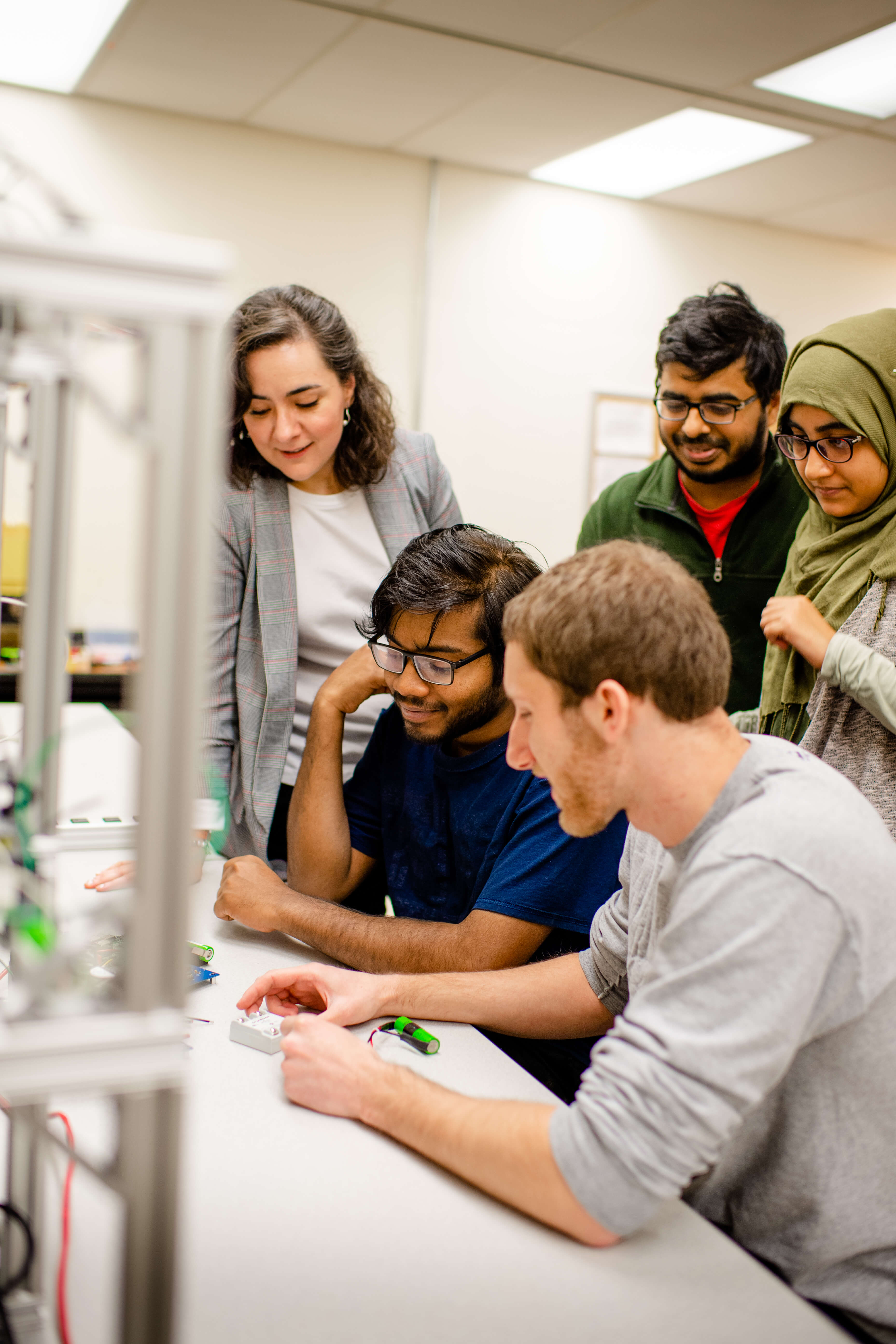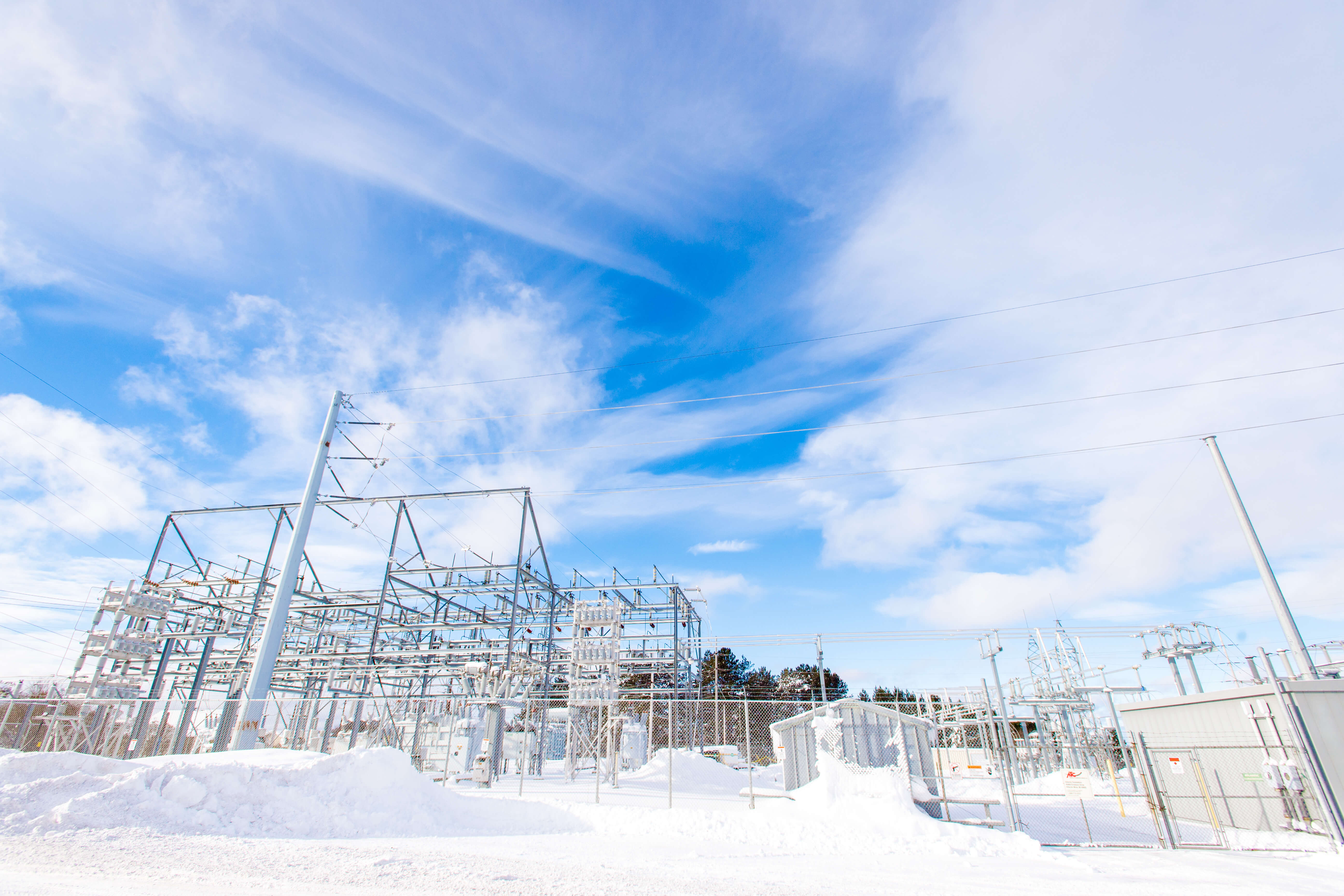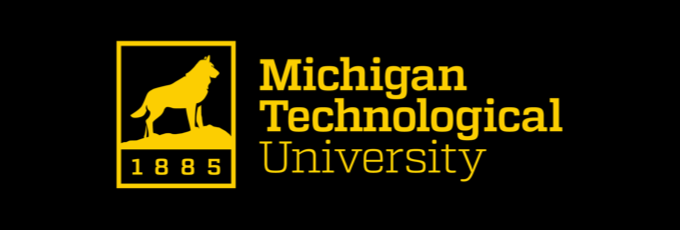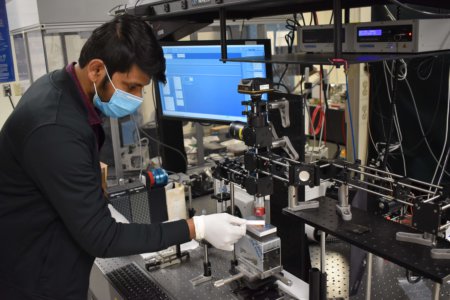During the day, Britta Anderson works on plans for high voltage distribution systems. At night, she learns more about the intricate workings of a control center in her by Michigan Technological University. Each part helps her understand the other better.
“It’s downright fascinating,” she shares. “I can draw on my industry experience to help guide my learning while at the same time further my understanding of the theory behind the things I do every day at my job.”
Since 1928, the Department of Electrical and Computer Engineering has been a world leader in providing quality education. In 2021, that translates to programs that are highly ranked, flexible and hands-on — or what Anderson describes as a “great synergy of learning and experience.”
Michigan Tech is ranked at joint #88 place out of 216 engineering schools that grant doctoral degrees in US News and World Report’s “2022 Best Engineering Schools” list — a testament to its high quality programs.

Creating technological advances that improve everyday life and change the world for the better — that’s what drives Michigan Tech. Source: Michigan Technical University
During their program, students gain technical capabilities and interpersonal skills necessary to succeeding in their fields, as well as the foundation for lifelong learning. They do so in labs where a hardware-in-the-loop education comes to life with industry-standard equipment.
The setting? A safe campus in Michigan’s Upper Peninsula, which overlooks the Keweenaw Waterway and is just a few miles from Lake Superior. College Magazine ranks the university the #1 safest campus in the US — each year, it is typically ranked in the top 10. From Fire Safety Day to Personalized Safety presentations, there is a long list of ways various groups take to ensure the safety and wellbeing of the campus community.
Its Department of Public Safety and Police Services, for example, operates 24/7 and is staffed by trained, certified state of Michigan police officers who have full law enforcement authority (including the power of arrest) throughout Houghton County.
Quality, flexibility and impact
Working professionals can take Michigan Tech’s dynamic programs from the comfort of their office or home. At their convenience, MS in Electrical and Computer Engineering (Power Systems) students can cover courses such as Circuits and Instrumentation; Electric Energy Systems; Modern Communication Systems; Power System Operations; Power System Protection, Smart Grid Technologies, and Algorithms and Optimizations — the very same taken by on-campus students. Both follow the same syllabus and schedule and, with few exceptions, complete the same coursework.
Employers recognize the quality of Michigan Tech engineering students and graduates. More than 350 employers regularly recruit for internships, co-ops, and for full-time employees. Up to 98% are employed within their field of study, enlist in the military, or are enrolled in a graduate school within six months of graduation.
Jaya Raghavendra Arun Kumar Yellajosula, who holds a master’s degree and PhD from the Department of Electrical and Computer Engineering with a focus on Power Systems and Smart Grids, is now working with Schweitzer Engineering Laboratories as an Integration and Automation Engineer in R&D Protection Systems.
The Class of 2019 graduate from India credits the coursework and research labs at Michigan Tech for equipping him with the hard and soft skills the industry requires. Not only did he get a better understanding of power systems and insights into research through the course projects, he landed interviews from multiple organizations and national labs too.
Among the hard skills Yellajosula gained include experience in using software and hardware lab equipment, professional project documentation and other supporting lab documents, and power systems design with an emphasis on stability, dynamics, protection, and communication. “The soft skills that I gained were communication, teamwork, interdisciplinary team management, and the ability to receive and provide constructive criticism,” he explains. “These helped me to prepare myself to face the professional and research industry, as these skills would be needed in day to day work and helpful in confronting the challenges offered in the industry projects.”

Source: Michigan Technical University
That’s not all. When you study electrical engineering at MTU, you’ll join a world-renowned engineering faculty. MSEE student, Manan Hitendra Mehta, initially thought that the transition from India to the US was going to be challenging, “but professors at Michigan Tech helped smooth the transition and helped me understand what is required and how to understand the concept of a particular topic,” he enthuses. “My professors have been knowledgeable, accessible, and approachable.”
When the pandemic caused the campus to shut down last year, classes went online. At first, this bothered Mehta. He was a little unsure how effective online classes could be — that didn’t last long. The more classes he took, the more he was “impressed with the quality of education” he was receiving at Michigan Tech. “They made a conscious effort to teach and provide us with the same level of knowledge online, as they would in class,” Mehta shares.
Seasoned engineers like Arend Natapradja would know. From IT to medicine, oil and gas to utilities, more industries now need power engineers to keep their systems safe and reliable. This demand drove Natapradja to Michigan Tech’s online MSEE. “I am gaining more confidence and knowledge in power distribution, power quality, and relay protection system,” he explains.
“As a full-time employee with 15 years in the oil and gas industry, having a master’s degree in power systems is a great benefit to unlock more opportunities with other different industries in this world … I recommend full-time electrical engineers to take an online master’s degree at Michigan Tech University. It helps add value.”
Michigan Tech charges no application fees and offers rolling admissions. That means although there are no application deadlines, students should take note of the short lead times. Interested applicants are encouraged to apply by April 1 for fall semester (August start) and September 1 for spring semester (January start).
Follow Michigan Tech on Facebook, Twitter, LinkedIn, and Instagram













